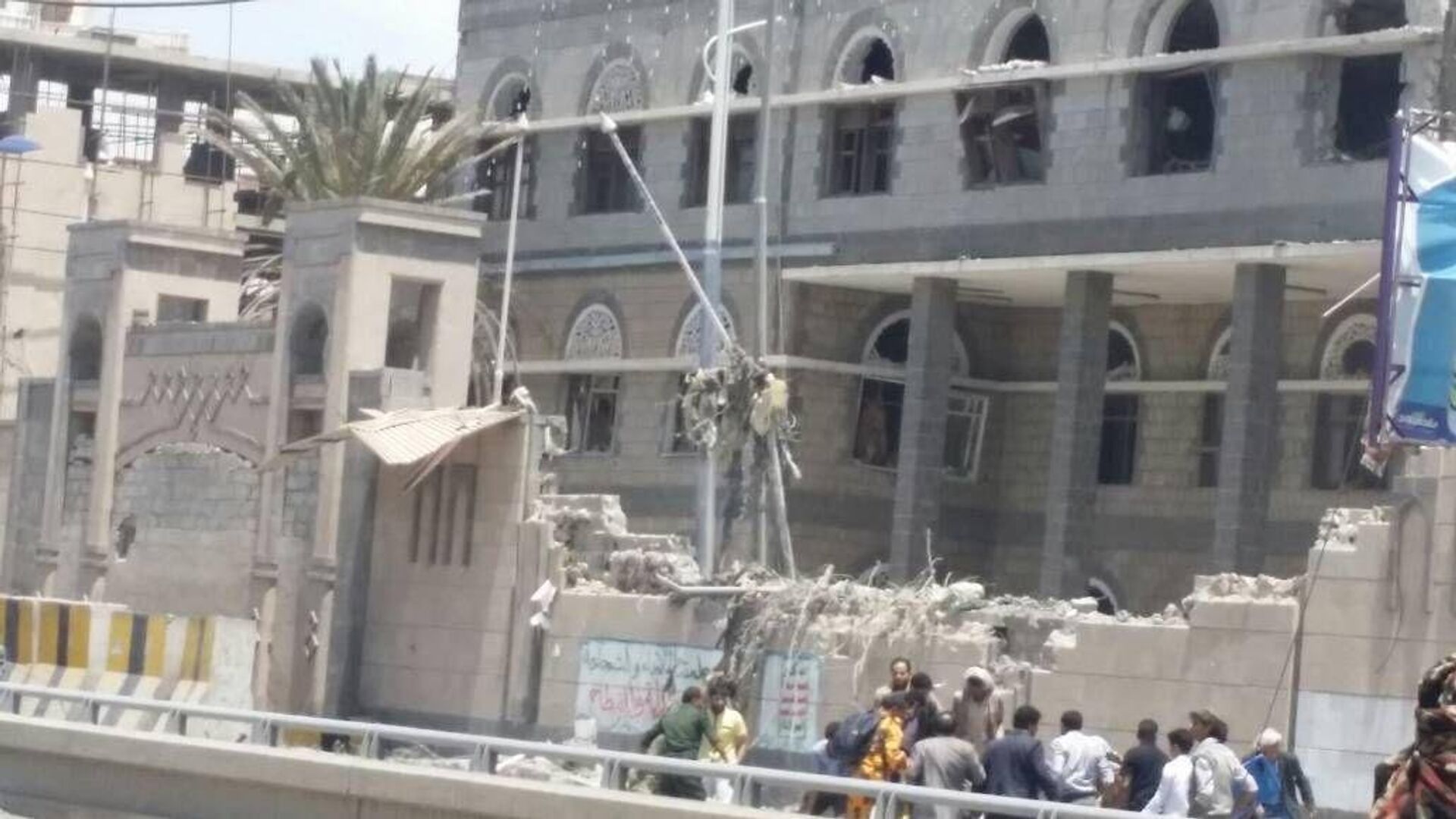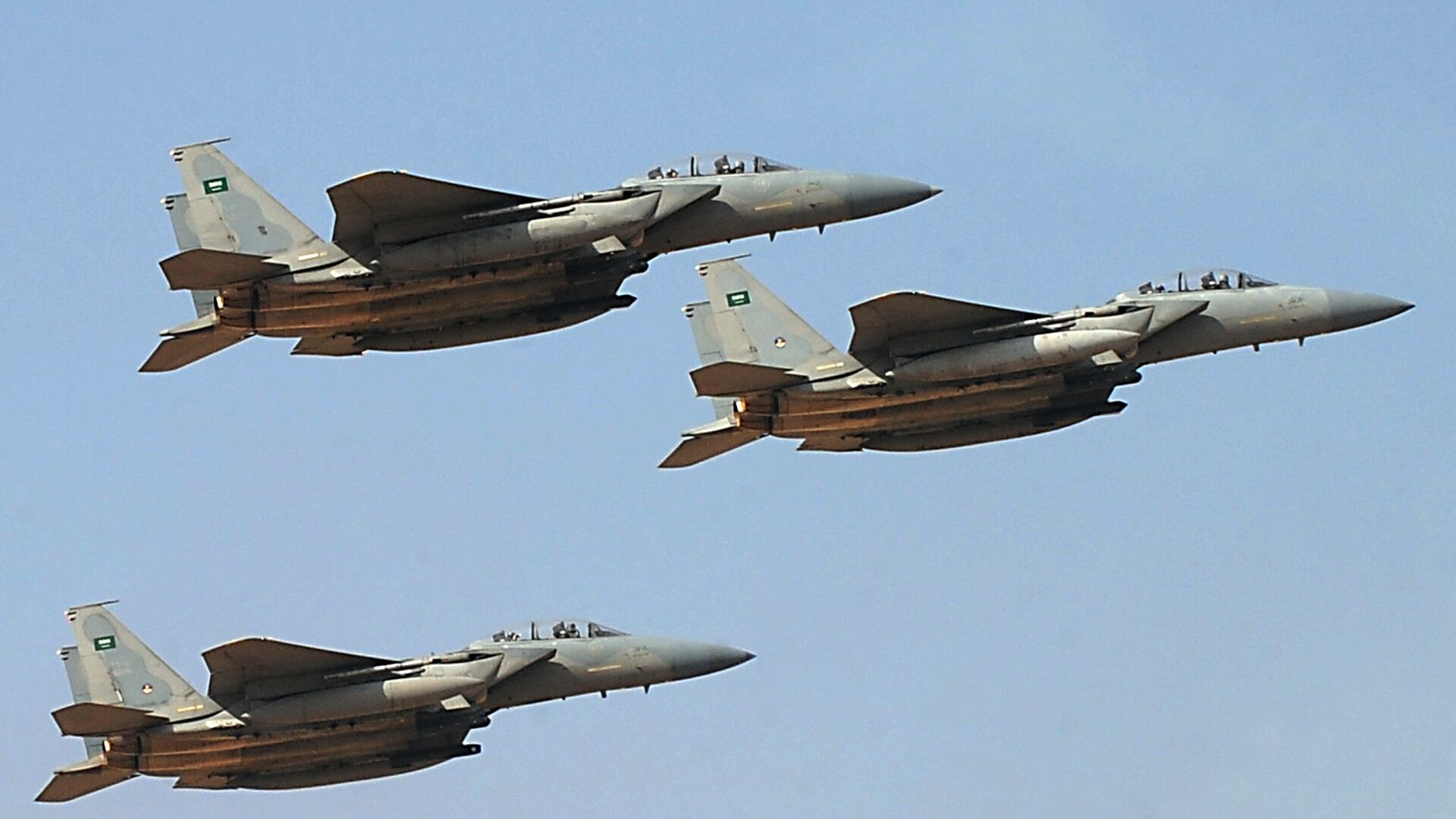In a pointed response to US accusations on Wednesday, the Iranian Foreign Ministry accused Washington of profiting from a “blood trade” by selling weapons to Saudi Arabia for the war in Yemen.
Ministry spokesperson Saeed Khatibzadeh told reporters Wednesday that the US and its allies “have been reaping [the] benefit[s] from blood trade in Yemen by selling arms to the Saudi-led coalition.”
“The Americans [among them] cannot throw baseless accusations at others instead of being accountable for the atrocities,” Khatibzadeh added, according to PressTV. He further noted that as the Saudi-led coalition’s position slowly falls apart, “they still try to disavow responsibility for the atrocities and misdirect the public opinion.”
His comments come a day after US Secretary of State Antony Blinken accused Iran of perpetuating the conflict by supporting the Houthis, which are formally known as Ansarallah.
“Iran’s involvement in Yemen fans the flames of the conflict, threatening greater escalation, miscalculation, and regional instability,” Blinken said in a Thursday statement. “Ansarallah uses Iranian weapons, intelligence, training, and support to conduct attacks threatening civilian targets and infrastructure in Yemen and Saudi Arabia.”
“We will ensure Saudi Arabia and our regional partners have the tools they need to defend themselves, including against threats emanating from Yemen that are carried out with weapons and support from Iran,” he continued, adding the US was “working diligently” to end the conflict.
It’s a remarkable reversal of the history of the war in Yemen. As the Houthis swept to power at a head for a mass movement against austerity in 2014 and 2015, Yemeni President Abdrabbuh Mansour Hadi fled the country for Riyadh, at which point the Saudis launched a bombing campaign against the Zaidi Shiite group with the stated goal of returning Hadi to power.
The US, a close partner of Saudi Arabia since the 1940s, has not only sold advanced weapons to the Saudis and other coalition members like the United Arab Emirates, Egypt, and Morocco, but also provided extensive logistical support for coalition attacks including targeting information and aerial refueling services. In addition, small numbers of US troops were dispatched to the Saudi-Yemeni border, where they carried out patrols to destroy Houthi missile and artillery sites.

More than 100,000 people have died during the war, nearly all of them Yemenis, as the Saudi-led coalition blockaded Yemeni ports and bombed essentially all Yemeni civic infrastructure, including hospitals and schools, thanks to near-total domination of the skies. Only when the Houthis acquired short-range ballistic missiles like the Scud-based Burkan and so-called “suicide drones” enabling them to strike deep inside Saudi territory did the tide begin to shift. They also acquired surface-to-air missiles like the Soviet-era 9K32 Strela-2 shoulder-fired missile and developed their own self-made missiles.
The US has claimed Iran supplied these weapons and is responsible for the reversal of the war - claims both Tehran and the Houthis have rejected. Indeed, many of the weapons used by the Houthis are either crude or decades old and widely proliferated in conflicts across the region.
Last month, a new Houthi offensive began against the city of Marib, the last major stronghold of Hadi’s government in northern Yemen. Earlier on Wednesday, they announced they had captured the majority of the ancient city, which was once capital of the Sabean Kingdom in Biblical times.
Former US President Donald Trump adamantly defended Washington’s relationship with Riyadh, even shielding Saudi Crown Prince Mohammad bin Salman from a US intelligence report finding him responsible for the October 2018 murder of dissident journalist Jamal Khashoggi in Istanbul, but also vetoing a Congressional resolution that would have ended US support for the Saudi war effort.
After US President Joe Biden took office in January, he put a freeze on weapons sales before committing to ending outright support for the war, but refused to put a blanket ban on selling the Saudis weapons of any kind.
“There is a very important distinction between our commitments to not engaged, not support offensive activities and operations in Yemen, including through the provision of offensive weapons, and the legitimate needs of the kingdom of Saudi Arabia in terms of its own defense,” Blinken said last week, adding the US would ensure “what it provides goes to the defense of the kingdom, not to its ability to prosecute offensive operations.”
Khatibzadeh criticized this position on Wednesday, saying that contrary to US claims, “we have not yet witnessed any practical measures aimed at the cessation of the Saudi-led coalition’s invasion.”
*Daesh (also known as ISIS/ISIL/IS) is a terrorist organisation outlawed in Russia and many other states


